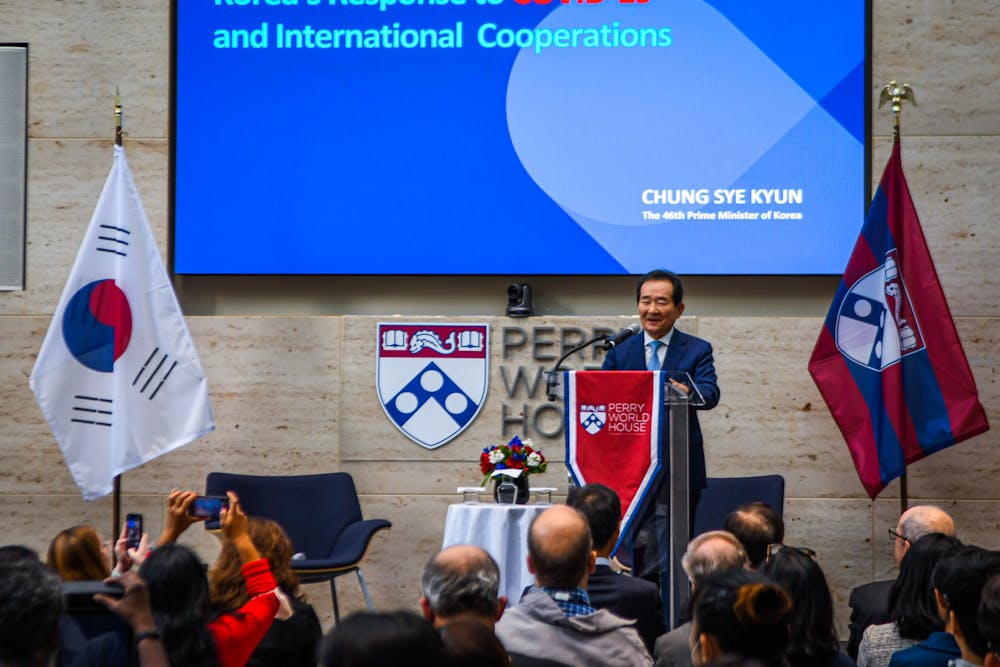
Former South Korean Prime Minister Chung Sye-Kyun visited Penn last week to discuss his response to the COVID-19 pandemic in an event hosted by Perry World House and the James Joo-Jin Kim Center for Korean Studies.
James Victory interpreted for Chung, who took office as prime minister in January 2020 and served until 2021. When Korea reported its first COVID-19 case on Jan. 20, Chung was also responsible for containing the virus across the nation. He led a strategy that has been dubbed “K-Quarantine” to limit the spread of the virus by implementing local quarantine policies rather than a national lockdown.
In the talk, Chung said that “K-Quarantine” allowed South Korea to maintain its medical and economic strength in the post-pandemic era. He cited multiple other reasons for South Korea’s success in containing the pandemic, including effective cooperation between central and provincial governments.
Chung added that he led online video conferences with municipal agencies as a representative of the central government to operate under transparency, democracy, and openness.
Chung also credited Confucian beliefs and democracy rooted in South Korean culture as factors that contributed to his success in containing the pandemic because it allowed citizens to prioritize community while protecting their individualism.
Another lucky factor, Chung said, was the availability of border control. Although South Korea is a peninsula, it behaved more like an island due to the border separating North and South Korea.
“There was a global shortage of masks at the time, and we were even able to send them to Korean war veterans who were overseas," Chung said.
College first-year Youbin Park, who was present for the Perry World House event, said that it was a great opportunity to hear a firsthand account of Chung’s combat against COVID-19.
“Although [his approach] wasn’t perfect due to the rise of cases later in the year and other factors such as the Omicron virus, I was pretty impressed by Chung’s strict and effective policy to contain COVID-19,” Park said.
When the pandemic began to spread across the nation, Chung said that the virus was likened to pneumonia in its symptoms and contagion. As cases rose, the government focused on helping people combat the pandemic in their daily lives.
Chung used the test, tracing, treatment, isolation, and quarantine intervention strategy — better known as TTTIQ — to accomplish this goal. Each provincial government established a free testing site for early identification of patients. The Korean government located people with positive symptoms and obtained their credit card information to trace their paths through digitization.
If people displaying symptoms tested positive for COVID-19, they were put into quarantine along with those who came in contact with them.
College first-year Daniel Cho said that the prime minister’s decisions, such as the TTTIQ strategy, were very sophisticated and efficient ways to fight the epidemic.
“It’s not an easy task to be a politician in the frontier of the act against the outbreak of COVID-19, and Chung’s policies were effective,” Cho said.
The Daily Pennsylvanian is an independent, student-run newspaper. Please consider making a donation to support the coverage that shapes the University. Your generosity ensures a future of strong journalism at Penn.
Donate







